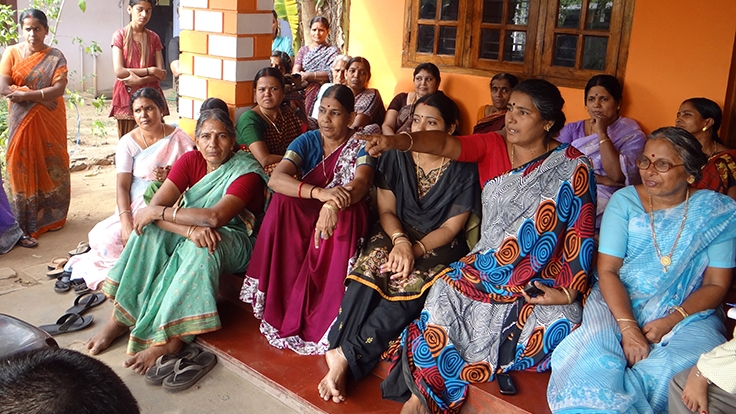The stream that flows by this sultry, spice-scented corner of India’s Malabar coast in Kerala is drying up again. But, Kadija Mohammad is not worried. For, she no longer depends on its vagaries to meet her family’s needs.
Now, for the first time in years, village homes in most of north Kerala are not starved for water during the dry summer months between February and May. The change has been brought about by Jalanidhi, the Kerala government’s innovative rural water supply and sanitation program.
The World Bank is supporting the Jalanidhi program with a $ 65.5 million Kerala Rural Water Supply and Sanitation Project - now reduced to $ 53.2 million after funds were diverted for tsunami reconstruction work in the state. The program has brought water into village homes by putting local communities in charge of managing their own water supply schemes for the first time in their lives.
Kerala has less water per person than Rajasthan
Despite getting three times more rainfall than the rest of India, Kerala surprisingly has less water available per person than the arid states of Gujarat and Rajasthan. This is because of its mounting population pressures and the unusual lie of its land that allows 40% of its rain water to flow wastefully into the sea.
With water hard to come by, the women of the region invariably had to rise early to make the rounds of village taps and wells to fetch water for their families to drink and bathe, fill their kitchen pots, and do the family laundry. Finding enough water for family chores always took longer in the dry summer months when local streams dried up.
Village homes now have water on tap
The program has made everyday life much easier for families, especially saving the womenfolk hours of backbreaking labor to fetch water each day. Today, some 93,000 households in the region receive clean drinking water in their homes largely through their own efforts; more than 60% of these families live below the poverty line.
The project achieved this by empowering villagers to plan, operate and maintain their own water supply systems, reversing the age old ways of the top-down centralized bureaucracy.
Households have come together to identify sites for village wells with the help of local NGOs. Local contractors have been hired to dig the ground and lay pipes and pumps. The villagers contributed 15% of the cost, their local government gave 10%, and Jalanidhi provided the rest.
Conservative women too voice their views openly
Jalanidhi has raised the level of local leadership, and the gram panchayat is now able to draw on these people and utilize their skills for other development schemes. But, perhaps the greatest social impact of Jalanidhi can be seen among the Moplah women, from the conservative Muslim community of Malabar. Several women are actively involved in the operations of the water supply system.

